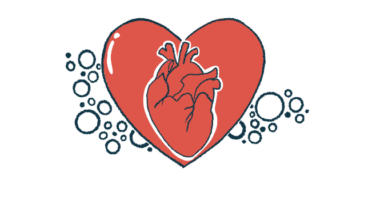Etomidate Lowers Severely High Cortisol in Infant With Adrenal Cushing’s

Treatment with Etomidate worked to reduce severely elevated cortisol levels in a 2-month-old girl with Cushing’s syndrome caused by adrenal cancer, a case study reported.
According to the researchers, the study describes the second reported case — in the youngest patient to date — of etomidate treatment in an infant with Cushing’s syndrome.
Although the patient eventually died due to her symptoms, the researchers wrote that the treatment “was the best possible option after unsuccessful surgical treatment.”
The report, “Using Etomidate in a 2-month-old Infant with Cushing Syndrome due to Adrenocortical Carcinoma,” appeared in the Journal Of Clinical Research İn Pediatric Endocrinology.
Cushing’s syndrome is caused by the excessive production of the stress hormone cortisol. It may result from tumors on the cortisol-producing adrenal glands or from pituitary gland tumors that induce secretion of the cortisol-inducing adrenocorticotropic hormone (ACTH), as is the case in Cushing’s disease.
The disorder is typically treated by the surgical removal of the mass that is indirectly or directly inducing the elevated cortisol levels. When surgery is impossible or unsuccessful, medical treatment is sometimes required.
Etomidate, an anesthetic marketed as Amidate, is known to suppress cortisol production by acting on the adrenal glands. While intravenous (into-the-vein) etomidate has been shown to reduce cortisol levels in patients with Cushing syndrome, it has never been studied in infants with the disorder.
This study now describes the case of a 2-month-old girl with Cushing’s syndrome. During a checkup, she was found to have high blood pressure and a rapid heart rate — symptoms of high cortisol levels — and was admitted to the hospital after follow-up tests revealed heart muscle abnormalities.
She had the characteristic features of Cushing’s syndrome, including a rounded face, purple stretch marks, and an accumulation of fat in the abdomen, chest, and face. The baby’s growth was in the bottom percentile, and her weight and BMI were in the top percentile, on infant measurement charts.
The patient’s cortisol levels of 112.7 micrograms per deciliter (µg/dL) were well above the normal range of 5-23 µg/dL, while her levels of ACTH were quite low, suggesting pituitary-independent Cushing’s syndrome.
Abdominal imaging revealed a mass later diagnosed as a cancer of the adrenal glands, which had spread to the liver.
The tumor was removed and the patient’s cortisol levels rapidly dropped to 22.6 µg/dL. Two days after the surgery, however, her cortisol levels began to increase, reaching 68 µg/dL by 18 days post-surgery. She again experienced high blood pressure and an elevated heartbeat, as well as an enlarged heart, compressed lungs, and cancerous lesions in the liver.
The baby was started on chemotherapy to treat the liver metastases, and an etomidate infusion was given to treat the symptoms of high cortisol levels. The loading dose was 0.3 mg/kg, followed by a maintenance dose of 0.03 mg/kg/hour.
Within four hours of the infusion, the infant’s cortisol levels had dropped to 32.3 µg/dL. It then decreased to 21.7 µg/dL after eight hours. However, both etomidate and chemotherapy treatments had to be discontinued due to the development of low blood pressure and pneumonia.
The patient’s cortisol levels increased to 80.2 µg/dL, and after four days, etomidate treatment was restarted at a dose of 0.03 mg/kg/hour with no loading dose.
In three days’ time, her cortisol had decreased to 19.4 µg/dL and remained stable with no adverse effects at the maintenance dose.
However, the patient’s complications rapidly began to worsen and her vital signs deteriorated. She died due to her illness seven days after the termination of chemotherapy and five days after the second etomidate infusion.
The researchers noted that this case is the first to demonstrate that a 0.03 mg/kg/hour etomidate dose was able to safely reduce severely high cortisol levels in an infant with Cushing’s syndrome.
“This case will help determine future treatment strategies for similar cases in infants,” they wrote.






